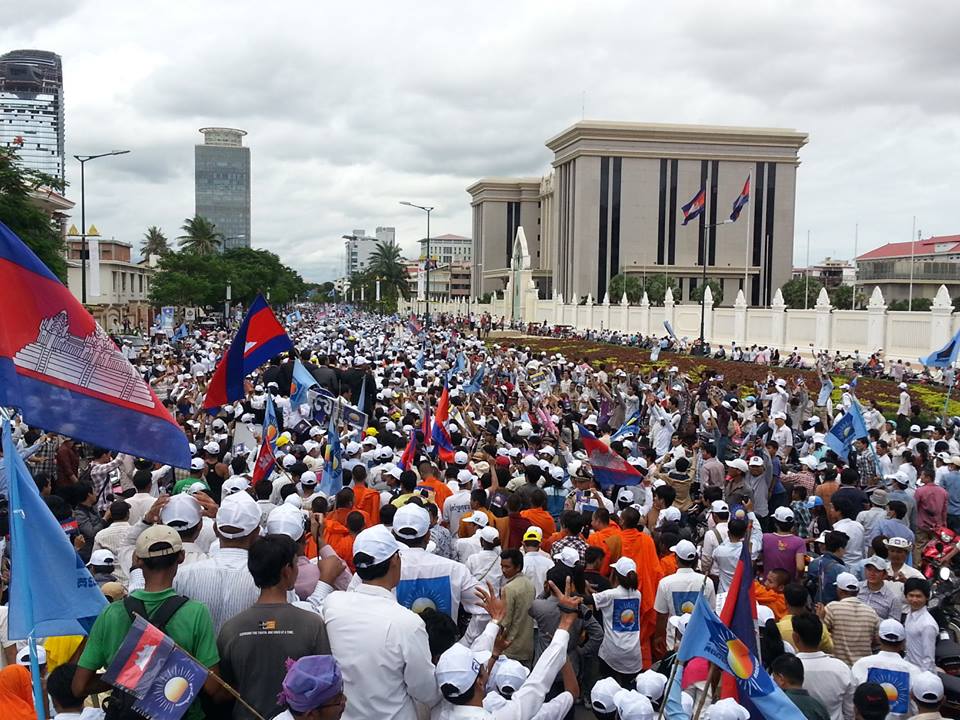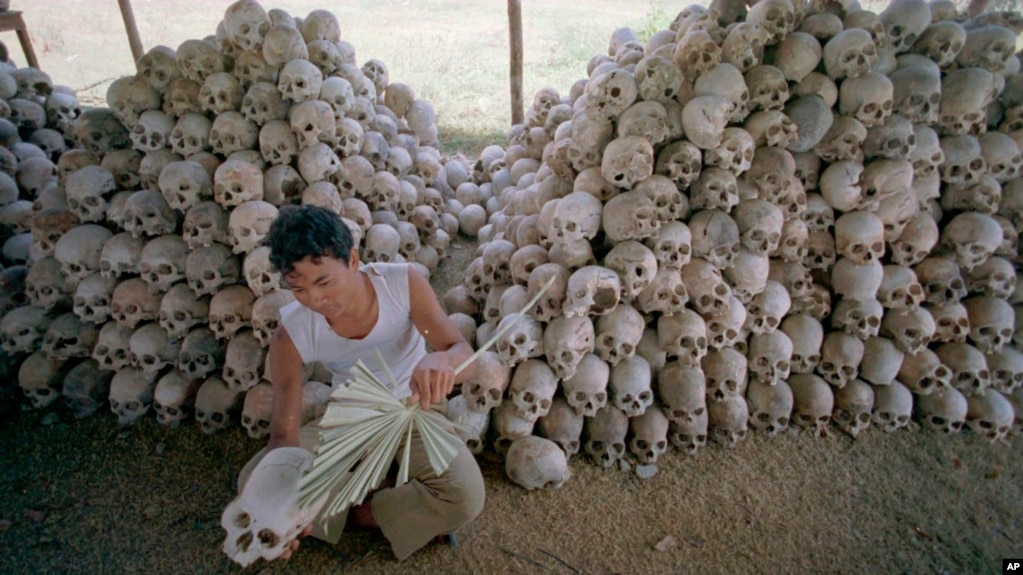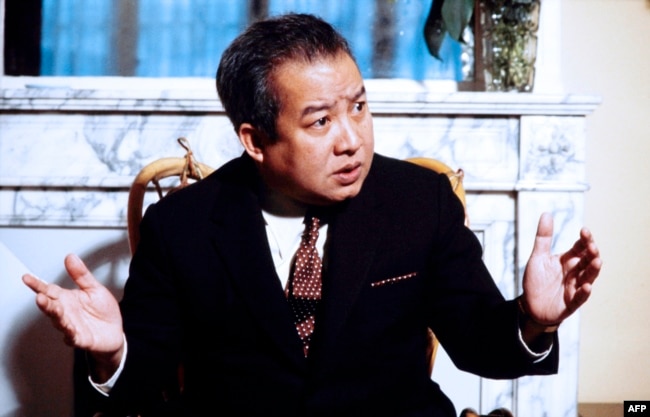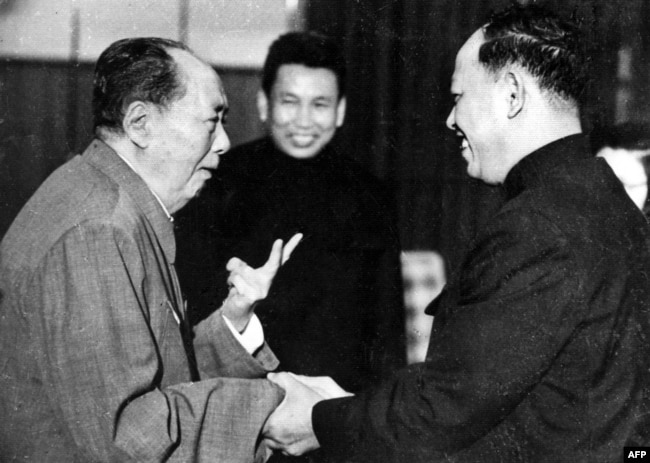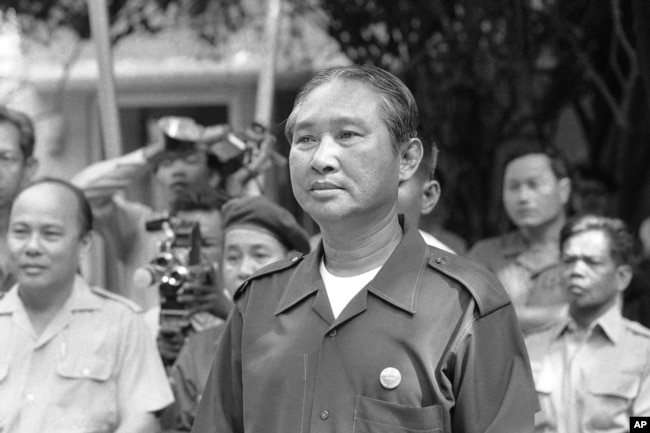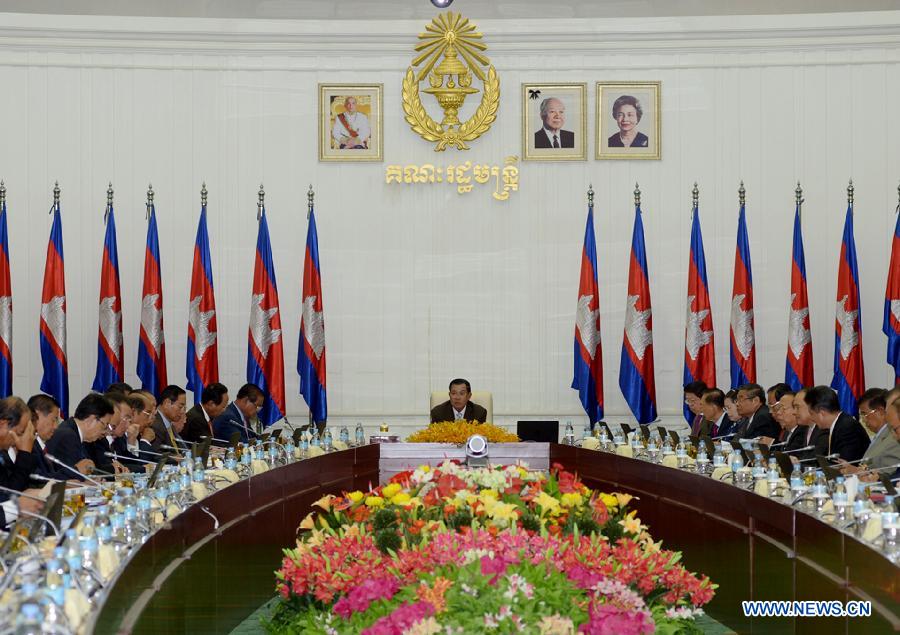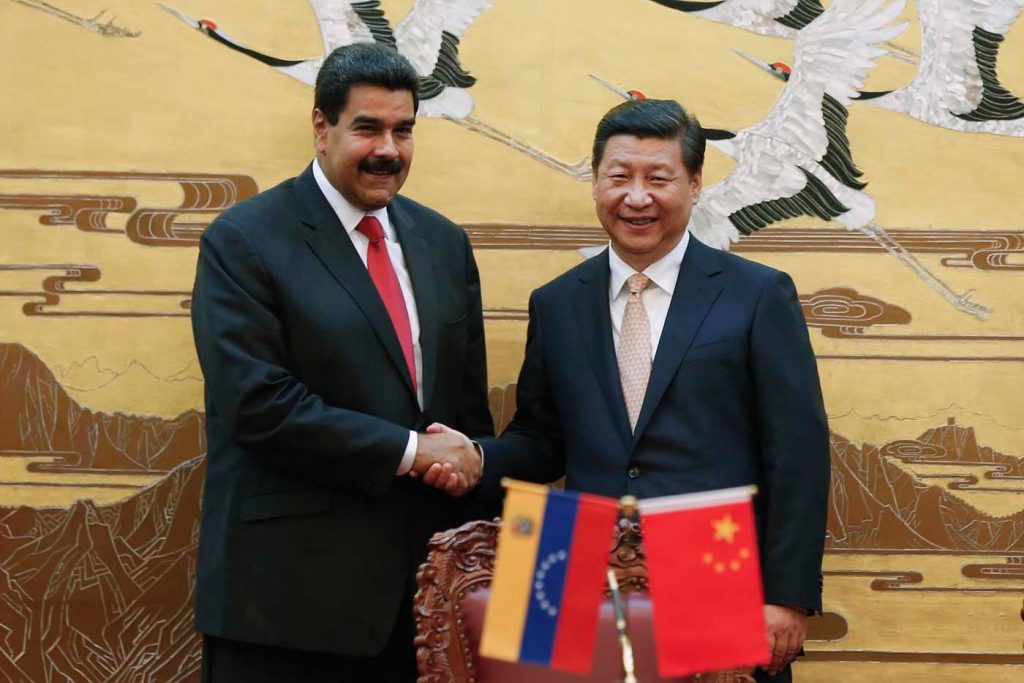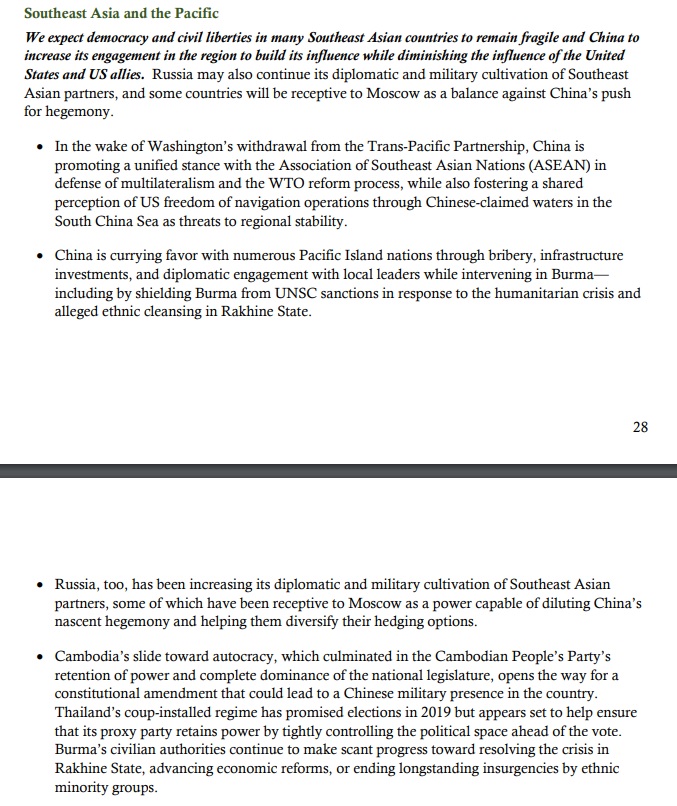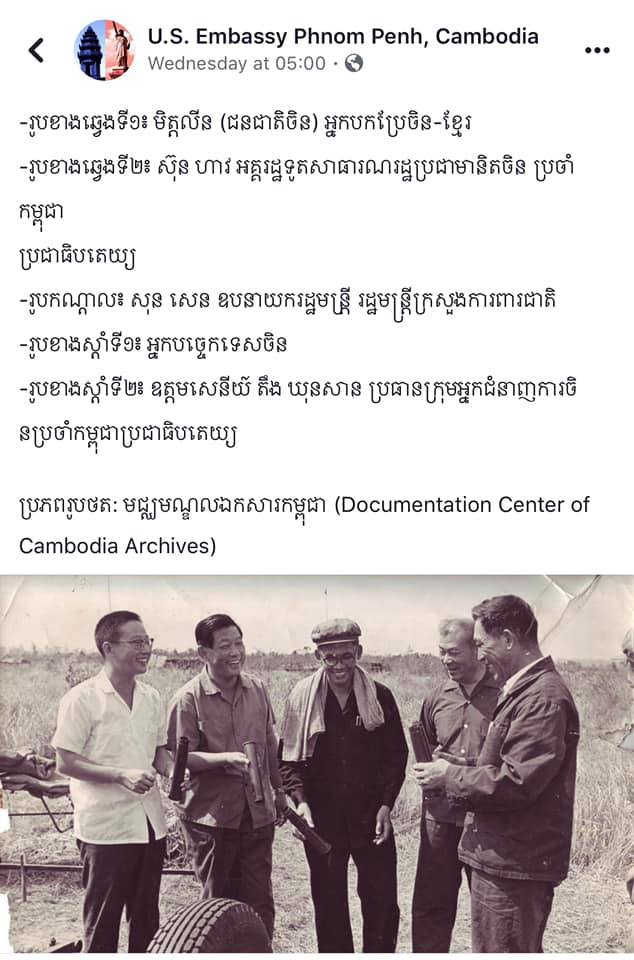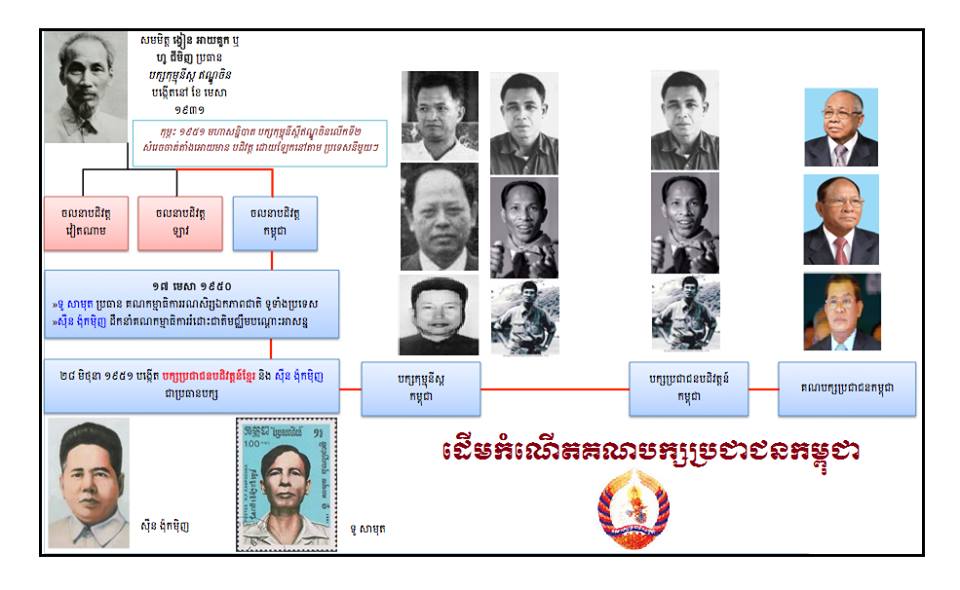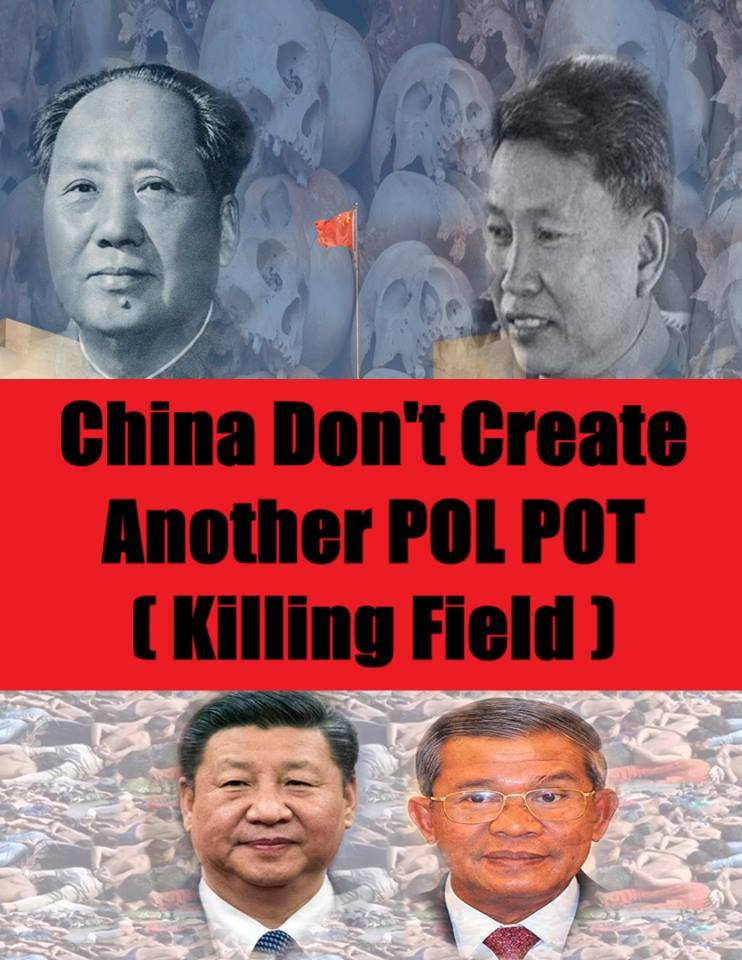សប្តាហ៍នេះជាដើមខែនៃបុណ្យមាឃបូជា ជាបុណ្យសំខាន់សម្រាប់អ្នកកាន់ព្រះពុទ្ធសាសនា។ មាឃបូជាត្រូវបានពុទ្ធបរិស័ទចាត់ទុកថាជាថ្ងៃបុណ្យរំលឹកដល់ព្រះធម៍នៅពេលដែលវិសាខបូជារំលឹកដល់ព្រះពុទ្ធ និងអាសាឍបូជារំលឹកដល់ព្រះសង្ឃ។
តែអ្វីដែលធ្វើអោយពុទ្ធបរិស័ទទូទាំងប្រទេសនិងជុំវិញពិភពលោកភ្ញាក់ផ្អើលនៅពេលនេះគឺការចាប់ផ្សឹកព្រះតេជគុណហោ-សុខុនទាំងយប់អាធ្រាតថ្ងៃទី១៣ខែកុម្ភៈឆ្នាំ២០១៩នេះនៅវត្តបទុមវតី រាជធានីភ្នំពេញ។ សូមបញ្ជាក់ថាព្រះតេជគុណហោ-សុខុនជាព្រះចៅអធិការវត្តច្បារអំពៅមានទស្សនទានព្រះពុទ្ធសាសនាផ្សាភ្ជាប់សង្គមដ៏ខ្លាំងក្លា ហើយរមែងកោតសរសើរមន្ត្រីជាច្រើនក្នុងជួររដ្ឋាភិបាលមានលោកនាយករដ្ឋមន្ត្រីហ៊ុន-សែនជាដើម។ ជាពិសេសជាងនេះទៅទៀតនោះ ព្រះសង្ឃអង្គនេះហ៊ានចេញមុខតវ៉ានិងប្តឹងលោកខឹម-វាសនា មេដឹកនាំបក្សសម្ព័ន្ធដើម្បីលទ្ធិប្រជាធិបតេយ្យដែលរមែងប្រើវោហាសាស្ត្រអសុរសវាយប្រហារប្រជាពលរដ្ឋខ្មែរ ព្រះសង្ឃ និងប្រទេសជាតិខ្លួនឯង តែរមែងគេចផុតពីសំណាញ់ច្បាប់។
សារចុងក្រោយដែលអាចនាំទៅរកការចាប់ផ្សឹកនេះគឺការដែលព្រះតេជគុណហោ-សុខុនអានអត្ថបទឡាយតាមហ្វេសប៊ុកសរសើរដល់លោកស-ខេងប្រៀបប្រដូចទៅនឹងផ្កាយសំណាងរបស់កម្ពុជាដែលអាចស្រោចស្រង់ប្រទេសជាតិពីវិបត្តិបច្ចុប្បន្ន។ អ្នកដែលទៅសួរនាំលោកដល់វត្តអំពីសុន្ទរកថានេះគឺលោកជា-សុផារ៉ានិងអភិបាលរាជធានីភ្នំពេញខួង-ស្រេងដែលគេស្គាល់ថាជាមនុស្សស្និទនឹងលោកនាយករដ្ឋមន្ត្រីហ៊ុន-សែន។
ការផ្សឹកព្រះសង្ឃហោ-សុខុនគឺប្រផ្នូលនៃការបែកបាក់ដែលមិនអាចផ្សះផ្សាវិញបាន
ជារឿយៗ លោកស-ខេងត្រូវបានមហាជនស្គាល់តាមរយៈភាពមុឺងម៉ាត់ក្នុងការគោរពច្បាប់និងមានចំណេះដឹងខ្ពស់ខាងដឹកនាំប្រទេសតាមនីតិរដ្ឋ ដែលផ្ទុយពីលោកហ៊ុន-សែនដែលរមែងបត់បែននិងជាន់ឈ្លីលើច្បាប់ក្នុងន័យរក្សាអំណាចក្នុងមោទនភាពនយោបាយឈ្នះៗរបស់ខ្លួន។ អ្នកទាំងពីរមានទស្សនៈដឹកនាំប្រទេសជាតិខុសគ្នាឆ្ងាយណាស់រាប់ចាប់តាំងពីលោកជា-សុីមមកម្លេះ។ មហាជនយល់ថាលោកស-ខេងប្រៀបបាននឹងទឹកត្រជាក់ដែលត្រីទាំងឡាយរមែងមកស្នាក់អាស្រ័យ។ ចំណែងលោកហ៊ុន-សែនប្រៀបបាននឹងភ្លើងដែលរមែងឆាបឆេះជារៀងរហូត។ ជាលទ្ធផល មកដល់ថ្ងៃនេះលោកស-ខេងប្រមូលបានអំណាចទន់និងប្រជាប្រីយភាពខ្ពស់ក្នុងជួរថ្នាក់ដឹកនាំគណបក្សប្រជាជនកម្ពុជា នៅពេលដែលលោកហ៊ុន-សែនបានប្រឹងកៀរគរកំលាំងប្រដាប់អាវុធមកដាក់ខាងខ្លួនបានស្ទើទាំងស្រុងទាំងកំឡាំងយោធានិងប៉ូលីស។ លោកហ៊ុន-សែនមិនគ្រាន់តែស្ងប់ចិត្តជាមួយកំឡាំងប្រដាប់អាវុធ ទាំងកំឡាំងអង្គរក្សទាំង៦០០០ពាន់នាក់ដែលស្វាមីភក្តិចំពោះខ្លួននិងកំឡាំងយោធាជាតិដែលមានកូនច្បងរបស់ខ្លួនជាមេបញ្ជាការថ្មីថ្មោងនោះទេ លោកហ៊ុន-សែនបានប្រឹងកៀរគរច្បាមយកសេដ្ឋកិច្ចជាតិទាំងមូលមកដាក់ក្រោមចំណុះរបស់ខ្លួនផងដែរ។ តាមសារវីដេអូឃ្លឹបរបស់ព្រះសង្ឃហោ-សុខុន ព្រះអង្គសរសើរដល់គុណសម្បត្តិរបស់លោកស-ខេងចំៗតែម្តង ដែលជារឿយៗលោកស-ខេងមិនហ៊ានទទួលយកជាសាធារណៈទេ។ ការកោតសរសើរនេះកើតឡើងមិនប៉ុន្មានថ្ងៃក្រោយការលេចធ្លាយឯកសារអ្នកស្រឡាញ់ស្នេហាគណបក្សប្រជាជនកម្ពុជាវាយប្រហារខ្លាំងៗទៅលើលោកហ៊ុន-សែនដែលបានដឹកនាំប្រទេសកាន់តែផ្តាច់ការនិងគ្មានហេតុផលខ្លាំងឡើងៗក្នុងពេលបច្ចុប្បន្ន។
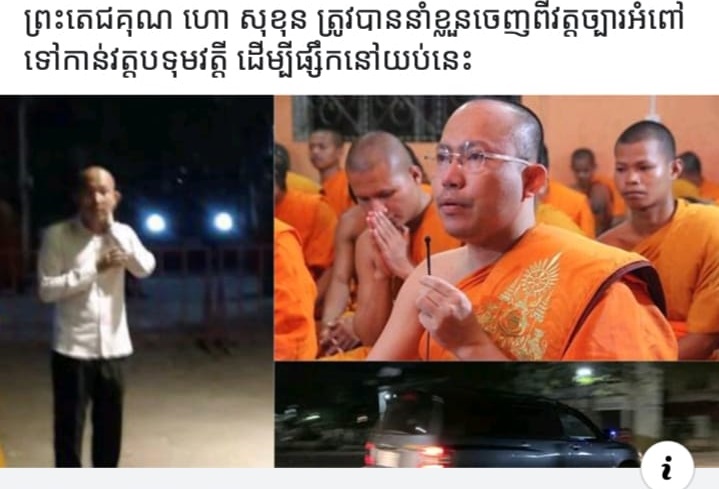
លោកហ៊ុន-សែនហាក់ដូចជាជឿក្នុងខ្លួនថាពេលណាខ្លួនក្តោបក្តាប់ទាំងស្រុងនូវកងកំឡាំងប្រដាប់អាវុធនិងសេដ្ឋកិច្ចបានគឺគ្មាននរណាផ្តួលរំលំលោកបានទេ!
ការសន្និដ្ឋានបែបនេះកើតឡើងនៅពេលដែលលោកហ៊ុន-សែនរើខ្លួនចេញរួចពីបាតុកម្មមហាជនរាប់លាននាក់ដឹកនាំដោយគណបក្សសង្គ្រោះជាតិក្នុងឆ្នាំ២០១៣ប្រឆាំងនឹងលទ្ធផលបោះឆ្នោត។ ពេលនោះលោកហ៊ុន-សែនរុញកូនអុកទៅក្នុងក្រឡា៥យ៉ាងគឺ
១. ប្រូម៉ូតខ្លួនឯងតាមបណ្តាញសង្គមហ្វេសប៊ុកដើម្បីយកប្រៀបលើសម-រង្សុី និងយល់ព្រមតាមសំណើររបស់គណបក្សសង្គ្រោះជាតិតាមចំណុចណាដែលខ្លួនបានប្រៀប។
២.ពង្រីកកំឡាំងអសន្តិសុខខ្លួនឯងដែលគាត់ហៅថាក្រុមបាតដៃទី៣ឬក្រុមប្រជាការពារដោយមានលោកហុឹង-ប៊ុនហៀងជាមេដឹកនាំក្នុងការដឹកនាំកំចាត់នៅក្រៅសំណាញ់ច្បាប់ទាំងក្រុមប្រឆាំងនិងក្រុមរដ្ឋាភិបាល។
៣. បង្កើនថាមពលនិងសព្វាវុធដល់ក្រុមអង្គរក្សផ្ទាល់ខ្លួន កំណែរទម្រង់កងយោធពលខេមរភូមិន្ទនិងប៉ូលីសដោយដាក់មនុស្សសំខាន់ៗដែលទុកចិត្តមានកូនៗនិងសាច់ញាតិជាដើម។
៤.្ ពង្រឹងនិងពង្រីកអំណាចក្រៅច្បាប់របស់ខ្លួនដើម្បីធ្វើអោយប្រាកដថាស្ថាប័នព្រះមហាក្សត្រ រដ្ឋសភា តុលាការ និងមន្ត្រីរាជការសុីវិលមានមនុស្សដែលស្មោះស្ម័គ្រខ្លួន ហើយពួកគេអាចធ្វើសកម្មភាពបានគ្រប់ពេលវេលាទាំងល្មើសច្បាប់ក៏អាចធ្វើបានដោយគ្មានទោសទណ្ឌ។
៥. ប្រគល់ដងខ្លួនមួយកំណាត់អោយទៅវៀតណាមនិងមួយកំណាត់ទៀតអោយទៅចិនដើម្បីអោយមានការគាំទ្រគំរោងបន្តអំណាចរបស់ខ្លួននិងការធ្វើសន្តតិវង្សមូបនីយកម្ម។
ជាលទ្ធផលលោកហ៊ុន-សែនធ្វើបានសម្រេចក្នុងរយៈពេល៣ឆ្នាំនេះដោយរំលាយគណបក្សសង្គ្រោះជាតិនិងដកបក្សដ៏ខ្លាំងក្លានេះចេញពីសៃវេណបោះឆ្នោតប្រជាធិបតេយ្យ និងបោះឆ្នោតលែងសើចក្តោបក្តាប់យកកៅអីសភាទាំង១២៥មកកាន់កាប់។
ប៉ុន្តែផលកម្មនៃគំរោងអធម៍នេះបានរួមរឹតលោកហ៊ុន-សែនទៅវិញ៖
១. ក្លាយជារដ្ឋាភិបាលមិនស្របច្បាប់ឬខ្វះធម្មានុរូបពិតប្រាកដ
២. កាន់តែពង្រឹងកំឡាំងទ័ពនិងកំឡាំងសេដ្ឋកិច្ច ក្រុមមេដឹកនាំគ្រាក់ៗនិងសមាជិកបក្សកាន់តែមានសមានចិត្តដល់លោកស-ខេង
៣. អុីយូ សហរដ្ឋអេមរិក អូស្ត្រាលី កាណាដា និងអង្គការសហប្រជាជាតិ នឹងមានវិធានការណ៌ខ្លាំងក្លាជាបន្តបន្ទាប់លើភាពឆ្គាំឆ្គងរបស់លោកហ៊ុន-សែន
៤. លោកត្រាំទៅជួបប្រជុំលោកគីម-ចុងអ៊ុននៅវៀតណាមខាងមុខនេះនឹងជាសញ្ញាថាវៀតណាមយកអាមេរិកជាបង្អែកក្នុងន័យធ្វើតុល្យភាពអំណាចជាមួយចិនក៏ដូចជាអាចនឹងប្រគល់ដងខ្លួនមួយចំហៀងនោះអោយមកហ៊ុន-សែនវិញ។ និង
៥. ពេលបច្ចឹមប្រទេសផ្តាច់កិច្ចអនុគ្រោះពន្ធពីកម្ពុជា ចិនជាអ្នកបាត់បងចំណូលច្រើនជាងគេពីព្រោះរោងចក្រកាត់ដេរជាង៦០០នៅកម្ពុជា ចិនជាអ្នកផ្គត់ផ្គង់វត្ថុធាតុដើម ហើយម្ចាស់រោងចក្រភាគច្រើនគឺជាជនជាតិចិន។
ហ៊ុន-សែននឹងក្លាយជាជនឯកាបន្តិចម្តងៗ មិនខុសពីភ្លើងបើឆេះសន្ធរសន្ធៅនៅកន្លែងណា មហាជននាំគ្នារត់ចេញពីកន្លែងនោះ។
ការផ្សឹកព្រះសង្ឃហោ-សុខុនគឺជាការជាន់ឈ្លីព្រះពុទ្ធសាសនាដែលអាចនាំទៅរកការមួរម៉ៅក្តៅក្រហាយដល់ពុទ្ធសាសនិកជនខ្មែរ
ព្រះសង្ឃដែលមានអបត្តិបរាជិក៤ ទើបអាចផ្សឹកបាន។ ព្រះសង្ឃហោ-សុខុនដែលជាអ្នកគាំទ្រគណបក្សប្រជាជនកម្ពុជាយ៉ាងប្តូរផ្តាច់ ព្រះអង្គគ្រាន់តែទេសនាវែកញែកតាមរយៈការច្របាច់បញ្ចូលគ្នារវាងធម៍និងសង្គម ឬគ្រាន់តែជាការសរសើរនិងនិន្ទាតាមទស្សនគតិផ្ទាល់ខ្លួន មិនអាចខុសវិន័យរហូតដល់មានការចាប់ផ្សឹកនោះទេ។ ប្រការនេះជាការជាន់ឈ្លឺព្រះពុទ្ធសាសនាយ៉ាងកំរោល។ ប្រទេសកម្ពុជាមានវត្តប្រហែលជាង៤០០០វត្ត និងមានព្រះសង្ឃប្រហែលជាង៦០០០០អង្គ។ ក្នុងចំណោមប្រជាពលរដ្ឋជាង១៥លាននាក់ ៩៨ភាគរយជាអ្នកជឿនិងប្រតិបត្តិព្រះពុទ្ធសាសនា។
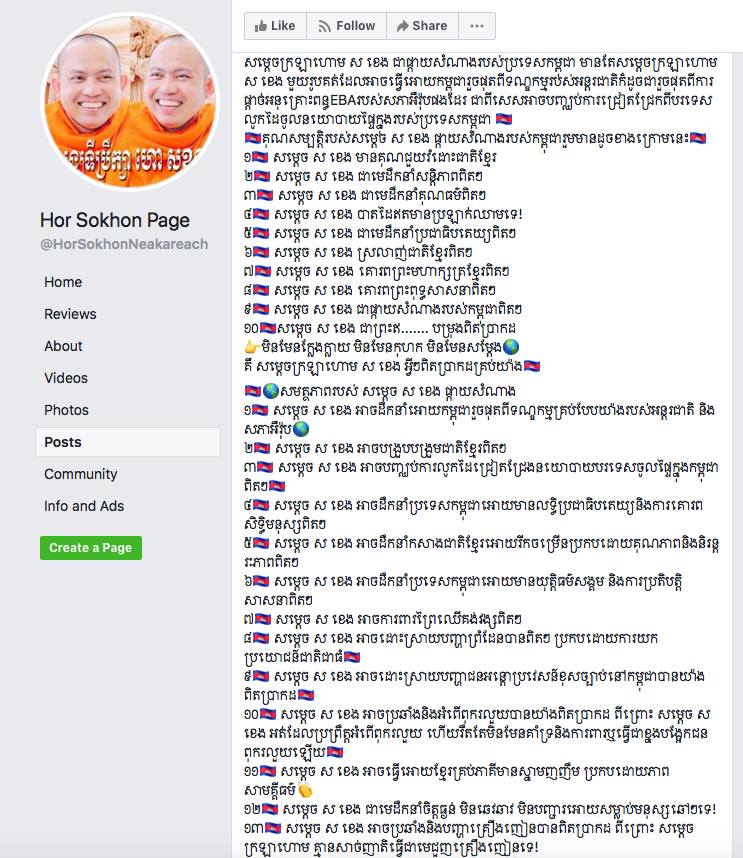
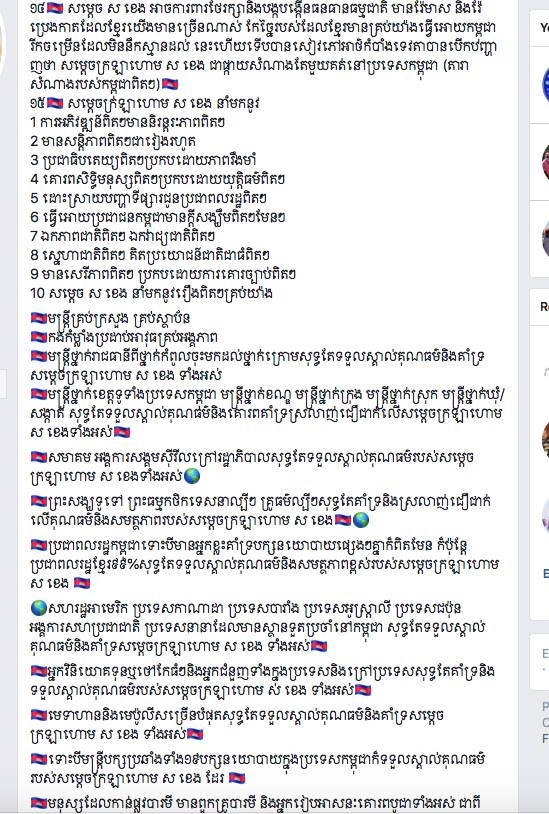
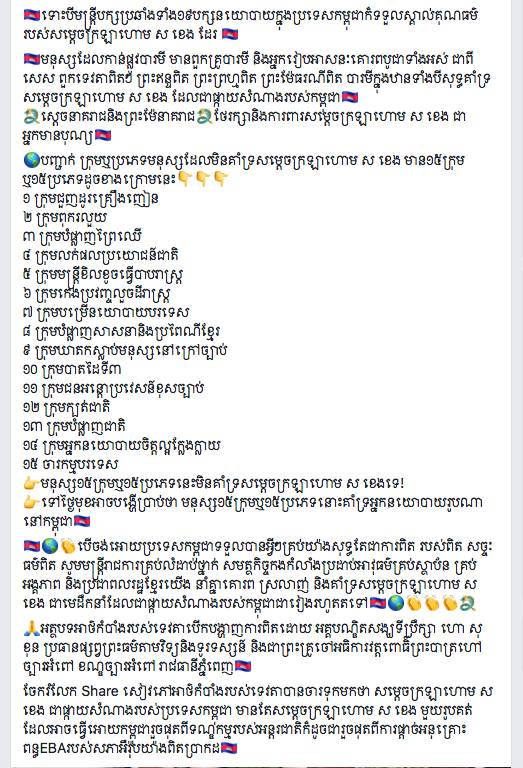
ការប្រកាសវិលត្រឡប់ចូលកម្ពុជាវិញរបស់លោកសម-រង្សុីធ្វើអោយហ៊ុន-សែនឆ្លេរឆ្លារកាន់តែខ្លាំងឡើងៗ
ក្នុងវ័យជរានិងមានជំងឺប្រចាំរាងកាយទៀត លោកហ៊ុន-សែនកំពុងប្រឈមបញ្ហាសព្វបែបយ៉ាង ទាំងផ្ទៃក្នុងបក្ស ទាំងការបាត់បង់សំលេងគាំទ្រពីប្រជាជននិងអន្តរជាតិ និងការត្រឡប់មកប្រទេសកម្ពុជាវិញរបស់លោកសម-រង្សុី។ ត្រូវកត់ចំណាំថាគំរោងវិលត្រឡប់មកប្រទេសវិញរបស់លោកសម-រង្សុីនឹងអាចមិនខុសគ្នាពីការប្រកាសជាប្រធានាធិបតីស្តីទីរបស់លោកជួន កៃដូ នៃប្រទេសវេណាស៊ូអេឡាទេ។ លោកសម-សង្សុីនឹងត្រូវប្រជាពលរដ្ឋមកទទួលស្វាគមន៍រាប់លាននាក់ដូចកំឡុងឆ្នាំង២០១៣ អន្តរជាតិជាពិសេសប្រទេសលោកសេរីនិងអង្គការសហប្រជាជាតិមិនអាចមិនអើរពើរ នឹងអមដំណើរលោកសម-រង្សុីនិងគណៈប្រតិភូរបស់គាត់ផងដែរ។
